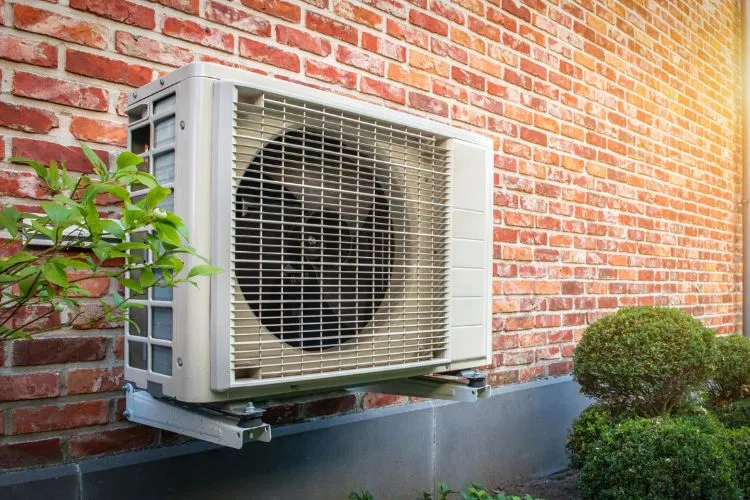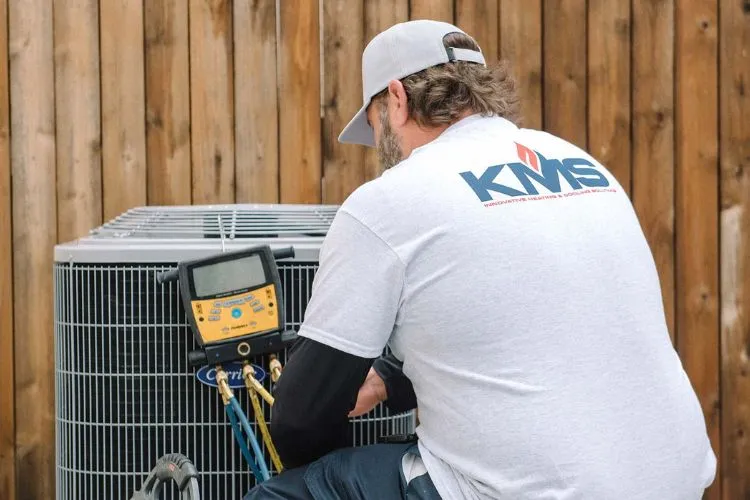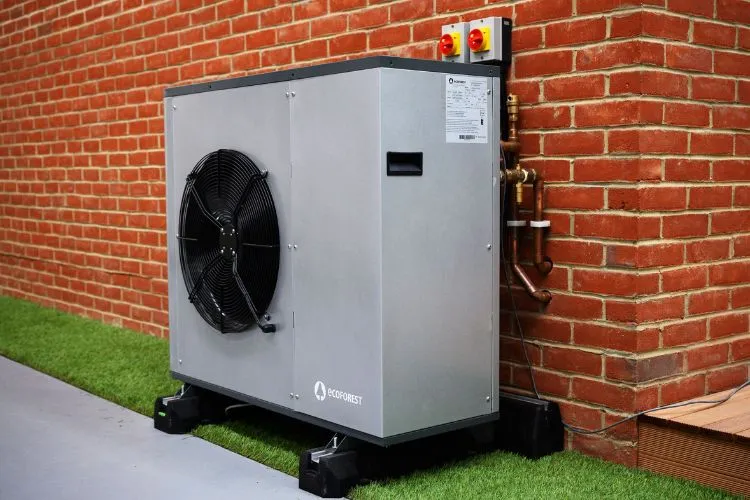As homeowners and businesses increasingly focus on energy efficiency and reducing carbon footprints, the question of whether heat pumps use a lot of electricity has never been more relevant.
So, do heat pumps use a lot of electricity?
In this comprehensive guide, we’ll delve into the workings of heat pumps, their electricity usage compared to traditional systems, and how to optimize their efficiency.

Understanding Heat Pumps
What Are Heat Pumps?
Heat pumps are devices that transfer heat from one place to another. They can serve both as heaters and air conditioners, making them versatile options for year-round climate control.
Unlike conventional heating or cooling systems that generate heat, heat pumps move existing heat, which makes them incredibly efficient.
How Do Heat Pumps Work?
At the heart of a heat pump’s functionality is the refrigeration cycle. By compressing and expanding refrigerant, heat pumps can extract heat from outside air or ground, even in cold conditions, and transfer it indoors.
This process is reversible for cooling purposes, removing heat from the interior of a building and releasing it outside.
Do Heat Pumps Use A Lot Of Electricity?
Factors Influencing Electricity Use
Electricity usage by heat pumps is influenced by several key factors. The size of the unit and its adequacy for a particular space is crucial.
An undersized or oversized unit will operate inefficiently, affecting electricity consumption. The climate plays a significant role as well; colder regions may see higher usage during the winter months.
The building’s insulation and the residents’ usage patterns also impact how much electricity the heat pump consumes.
Efficiency Ratings
Efficiency ratings such as SEER (Seasonal Energy Efficiency Ratio), HSPF (Heating Seasonal Performance Factor), and COP (Coefficient of Performance) are important indicators of a heat pump’s electricity usage.
Higher ratings mean the unit uses less electricity to heat or cool similar amounts of space, translating to lower utility bills and a smaller environmental footprint.
Comparing Heat Pumps to Conventional Heating and Cooling Systems

Electricity Usage
When comparing heat pumps to traditional systems, several studies have shown that heat pumps can use less electricity. This is largely due to their ability to transfer heat rather than produce it by burning fuel or using resistive heating elements.
Cost-Effectiveness
Though heat pumps may have a higher initial cost than some traditional systems, their operational costs over time can be significantly lower. The reduction in monthly utility bills often offsets the initial investment within a few years.
Environmental Impact
Heat pumps have a smaller environmental impact compared to many conventional heating and cooling systems. By using electricity efficiently and reducing the reliance on fossil fuels, they help decrease greenhouse gas emissions.
Real-World Usage Scenarios
Residential Case Studies
In residential settings, heat pumps can provide significant savings on electricity bills.
For instance, a family switching to a high-efficiency heat pump from a conventional heating system could see their heating costs decrease substantially, even in regions with colder winters.
Commercial Applications
In commercial buildings, the scalability of heat pump systems allows for efficient heating and cooling of vast spaces.
With proper installation and maintenance, commercial heat pumps can offer a reliable and cost-effective climate control solution, with decreased electricity usage compared to traditional commercial HVAC systems.
Tips for Optimizing Heat Pump Efficiency
To maximize the efficiency of heat pumps, regular maintenance is key. This includes cleaning filters and ensuring the system is free from obstructions.
Proper sizing and installation by a professional can prevent inefficiencies related to under or oversized units. Using smart thermostats can further enhance efficiency by adjusting temperatures based on occupancy and time of day.
Finally, improving home insulation can reduce the overall demand on the heat pump, leading to lower electricity use.

Installation and Initial Costs
Breaking Down Installation Costs
The initial cost of installing a heat pump is influenced by factors such as the type of heat pump (air-source, ground-source, or water-source), the size appropriate for the space it will service, and any required modifications to the existing heating system.
Additional costs might include upgrades to ductwork or electrical systems, and the degree of ground excavation needed for ground-source systems.
Comparing Initial Investments
When comparing the upfront expenses of heat pumps to traditional HVAC systems, heat pumps tend to be more expensive initially, especially ground-source models which involve extensive installation.
However, the higher upfront cost is often offset by lower operating costs and energy savings over time. Conventional systems, while cheaper to install, usually have higher energy costs and less efficiency, resulting in higher overall expenses in the long run.
Case Studies and User Experiences
Residential Success Stories
Homeowners save on energy bills and enjoy year-round comfort after transitioning to heat pumps, often noting significantly lower heating costs.
Commercial Achievements
Businesses report major energy savings and operational efficiency improvements post heat pump installation, with some seeing cost reductions of over 30%.
Frequently Asked Questions (FAQs)
Are heat pumps more efficient than gas boilers?
Yes, heat pumps can be significantly more efficient because they transfer heat rather than generating it through combustion.
Can heat pumps cool a house as effectively as they heat it?
Absolutely. Heat pumps are designed to provide efficient cooling, making them ideal for use in various climates.
What is the lifespan of a heat pump, and does it affect electricity consumption over time?
The average lifespan of a heat pump is about 15 years. Proper maintenance can ensure it remains efficient throughout its life.
How does the outdoor temperature impact the electricity usage of heat pumps?
As temperatures drop, heat pumps may need to work harder to extract heat from the outside air, which can increase electricity use.
Are there government incentives or rebates for installing energy-efficient heat pumps?
Many regions offer incentives or rebates to encourage the installation of energy-efficient heat pumps. Checking local programs is advisable.
Conclusion:
The question of whether heat pumps use a lot of electricity is nuanced. While they do require electricity to operate, their ability to transfer heat rather than generate it makes them more efficient than many traditional systems.
By understanding the factors that influence their efficiency and taking steps to optimize performance, homeowners and businesses can enjoy the benefits of heat pumps without excessive electricity costs.
In conclusion, heat pumps present an efficient, cost-effective, and environmentally friendly option for heating and cooling.
By carefully considering the type of heat pump, its installation, and ongoing maintenance, users can maximize benefits while minimizing electricity usage.
